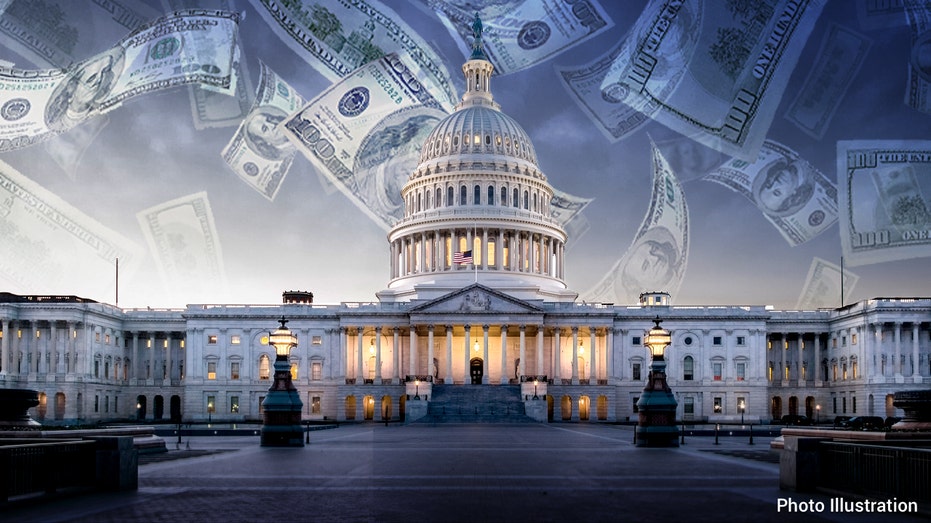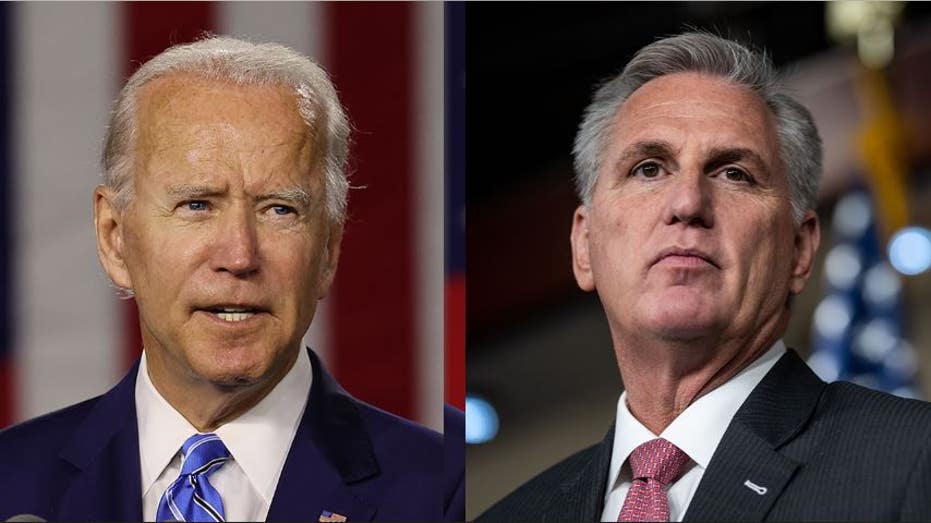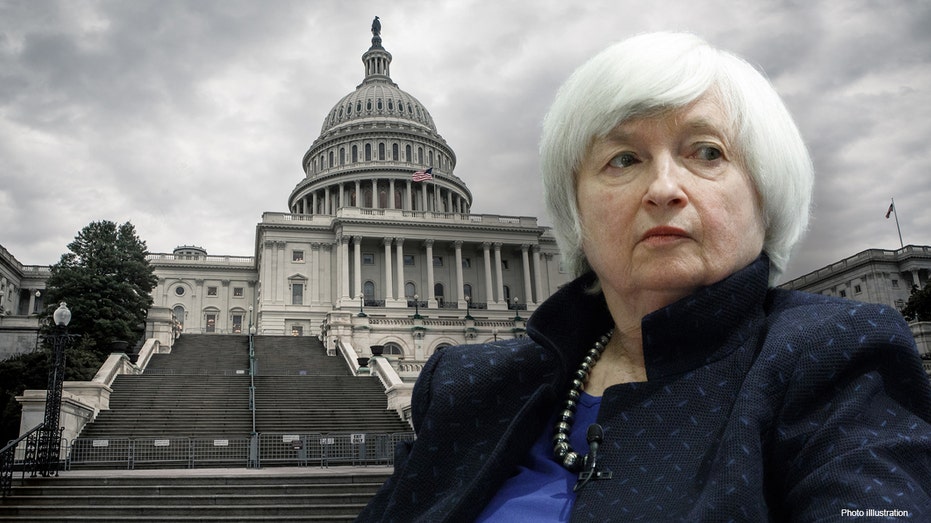US debt default deadline looms this summer or early fall, ‘urgent need’ for Congress to act: BPC
Federal spending, tax revenue collections to determine exact timing of 'X date'
'Not acceptable' to Americans, economy to add $19T to US debt: Moskowitz
Rep. Jared Moskowitz, D-Fla., discusses the U.S. debt ceiling and the pressure on Biden to address the Chinese spy craft incident.
The U.S. government is lurching toward the date on which it would be at risk of defaulting on the national debt, a date that is expected to arrive this summer or early fall, according to the latest projection released by the Bipartisan Policy Center (BPC) on Wednesday.
The federal government reached its statutory debt limit of $31.4 trillion on Jan. 19, which prompted the Treasury Department to begin using accounting tools known as "extraordinary measures" to pay the bills with cash on hand for a variable but limited time. The BPC projects that the "X date" on which the extraordinary measures will be exhausted will arrive sometime this summer or early fall, depending on fluctuations in spending and tax receipts.
"In the coming months, revenues during tax season will be the biggest single factor affecting the X date," BPC Economic Policy Director Shai Akabas told FOX Business. "If the final revenue from 2022 taxes is lower than projected, the X date would arrive sooner – and conversely, if revenue is higher, the date would move back. Either way, we expect tax revenues to significantly narrow the date range."
US NATIONAL DEBT TO RISE BY $20 TRILLION OVER THE NEXT 10 YEARS: CBO

Congress and the Biden administration will need to raise the debt limit by this summer or early fall to avoid a default, according to the Bipartisan Policy Center. (iStock / iStock)
Treasury Secretary Janet Yellen said that when she initially deployed the extraordinary measures, the accounting maneuvers would enable the government to continue paying its bills at least until early June.
Raising the debt limit will require a bipartisan compromise in Congress between Democrats, who hold the majority in the Senate, and Republicans, who control the agenda in the House. Although some high-level meetings on the debt limit have occurred between House Speaker Kevin McCarthy, R-Calif., and President Biden, negotiations are yet to begin in earnest, and Congress may face a time crunch if tax revenues fall short of expectations.
CBO OFFERS CONGRESS OPTIONS FOR SAVING SOCIAL SECURITY, MEDICARE, HIGHWAY TRUST FUND FROM INSOLVENCY

President Joe Biden, left, and House Speaker Kevin McCarthy, R-Calif., have discussed the debt limit, but negotiations haven't yet begun in earnest. (Chip Somodevilla / Kent Nishimura / Los Angeles Times / File / Getty Images)
"Today’s X date range reflects, in part, considerable uncertainty in our nation’s current economic outlook," Akabas said. "The early end – this June – presents an urgent need for Congress and the president to negotiate a path forward to avoid further downgrades of the United States’ credit rating and broad economic disruption. To minimize costs and risk, our leaders should be acting with that time frame in mind."
Lawmakers in Congress from both parties tend to drag out negotiations over fiscal matters in a search for leverage. Those dynamics often play out through last-minute votes to pass short-term continuing resolutions to avoid government shutdowns until deals are reached on massive omnibus spending bills. Past standoffs over the debt limit have featured similar brinksmanship, and in one notable case from the last decade, were volatile enough to rattle financial markets.
MAJOR SOCIAL SECURITY TRUST FUNDS COULD BE TAPPED OUT BY 2033: CBO

Treasury Secretary Janet Yellen has said that Congress has until at least early June to raise the debt limit and avoid a default. (Alex Kraus / Bloomberg via Getty Images / File)
The 2011 debt ceiling crisis featured the first-ever downgrade of America's credit rating as Standard & Poor's cut the rating from AAA (outstanding) to AA+ (excellent). Such credit downgrades can potentially raise governmental borrowing costs, although the other major rating agencies, Moody's and Fitch, kept the U.S. at their highest credit rating.
Credit downgrades can cause interest rates to increase, making it more expensive for the federal government to service the national debt and further widen the existing budget deficit.
GET FOX BUSINESS ON THE GO BY CLICKING HERE
Akabas told FOX Business, "The closer we get to the X date, the higher the costs and risks will be to U.S. taxpayers and hardworking Americans."
"Policymakers have an opportunity to inject certainty into the U.S. and global economy by beginning, in earnest, bipartisan negotiations around our nation’s fiscal health and taking action to uphold the full faith and credit of the United States well before the X date," Akabas added. "The sooner these negotiations begin, the better chance that the situation gets resolved before the economy really feels the impacts."




















